Intuitive Exercise Q&A

The principles you learn for intuitive eating can be helpful for practicing intuitive movement (also referred to as joyful movement, intuitive fitness, or intuitive exercise). That said, the exercise space presents challenges of its own in regards to overcoming diet language and culture. How can you step away from rigid, old exercise habits and move with more thoughtfulness and joy? I answer many of your intuitive movement common questions in the Q&A below.
Intuitive movement is wonderful for your body in so many ways, but it can be tough figuring out how to follow what your body needs when you have been disconnected for so long. Below I address how intuitive movement is similar to intuitive eating; how to start practicing intuitive movement; how training plans can fit into intuitive movement; fitness goals; and more. Please note: one of the links below is an affiliate link. I only use affiliate links for products I use and trust!
How is intuitive fitness similar to intuitive eating?
Both intuitive movement or exercise and intuitive eating require you to look inwards for inspiration and the determination of what types of movement or food would be best at the moment rather than relying on extrinsic motivation. In the case of intuitive movement this means asking yourself, what does my body need today? Or what type of movement do I feel like doing? Or what type of exercise would be most beneficial to my body today?
How can I start practicing intuitive movement?
The best starting place for practicing intuitive eating is to tune into your body with a body scan. Check in and see how your body is feeling that day and what type of movement sounds good – rather than just exercising because you think you “should”. Be curious about how your body feels on different days and how it responds to different types of movement, both physically and emotionally. Once you can understand your body a bit more – know how to gather information and what types of information are helpful – you can make movement decisions from a place of healthy reaction, not rigid enforcement. It’s also important to be aware of the times you are using exercise as a compensatory mechanism, like for something you ate, or as a way to change your body – these are external motivations that don’t take your body’s needs into consideration.
Can I practice intuitive fitness and still have a strict fitness schedule?
The key is flexibility in both frequency and type of movement. The word “strict” implies rigidity and a disregard for days when your body needs rest or you just don’t want to exercise. The intuitive movement finds the ‘grey’ area – it’s not all or nothing. While a consistent routine may be helpful for some people, it’s important to still be taking into consideration how your body is feeling and not just exercising because that was the day’s plan.
Can I follow a training plan or work with a personal trainer while practicing intuitive movement?
I equate training plans for intuitive movement to meal prepping for intuitive eating. I definitely think it can be done and many of us require a bit of pre-planning in our schedules to stay sane. The key is flexibility. For a training plan, this could mean brainstorming different options with your trainer for days when you want something less intense or more intense. As you learn more about your body you may need to adjust and build in rest days based on your response.
What if I listen to my body and it says to work out every single day?
It isn’t the schedule that I would question, but instead the motivation behind the schedule. I would encourage this person to think through a few questions: how do you feel – emotionally and physically – before and after you exercise? If exercise was not used as a form of body manipulation, would you still do it? How would you feel if you missed a gym session? Do you incorporate rest days? Do you use the word “should” when referring to exercise?
For this person, maybe exercise is an important stress-relief or energy release. Perhaps they are going through a particularly emotional time and exercise is a coping mechanism for them. If they experience guilt from not going to the gym, participate in all-or-nothing thinking when it comes to exercise, adjust their exercise to “compensate” for food choices, or dread their workouts, I would encourage them to loosen the reigns and get curious about their body
Do fitness professionals promote intuitive movement?
Traditional fitness relies on extrinsic motivation, which is why we hear instructors telling us we need to “compensate for the night before” or “push harder” without regard for how we are feeling. I think there are a lot of really great fitness professionals out there who encourage joyful movement for health reasons, but I also think the industry as a whole can be confusing and toxic. Intuitive movement was introduced by dietitians Evelyn Tribole and Elyse Resch in their book Intuitive Eating originally published in 1995, so the concept is not new. I think it is catching on more lately as people- fed up with diet and wellness culture- are looking for ways to make peace with food and exercise.
What if I give myself permission to skip workouts and then I just never workout again?
I would say that this implies a total distrust of our bodies and perhaps even a narrow definition of “working out.” When I work with clients on intuitive eating they find it really scary at first to allow all foods and remove restrictions. They think they will only want to eat foods they previously restricted and will never find balance. Although they may feel out of control at first, as they begin to listen to their bodies, they find themselves craving a variety of foods. I think the exact same thing happens with intuitive movement. Your exercise routine may look different than when it was rigid, but it will be more joyful, more sustainable, and overall healthier. Because if your exercise routine is causing you stress or anxiety, then it’s going to be counterproductive to your health goals. It may also just be finding ways of incorporating more movement into your everyday life, like walking to work if you live in a city, or cleaning your house, or walking your dog more frequently.
Can I practice intuitive movement and still see results, or does that take consistency?
I absolutely think that you can have goals within the intuitive movement, however, they do not revolve around weight loss because we know that weight is not a good proxy for health and also that focusing on weight actual detracts from health goals and can cause more issues. Improving strength, stamina, flexibility, balance, bone density, mood, anxiety, memory and energy levels are all really positive health benefits of exercise to strive for.
Consistency is not off-limits with intuitive movement, only rigidity. Consistency that is motivated by physical and mental health (rather than weight) and allows for flexibility of type and frequency of movement (including rest) is perfectly healthy and within the definition of intuitive exercise.
Interested in reading more?
Check out my original post on how to practice intuitive exercise and my recommendations for how to find body-positive fitness options.
What is your experience with intuitive movement or exercise? Share with me below!
Looking for more intuitive eating support?
Check out my Unapologetic Eating 101 Course, an online, self-paced program to liberate yourself from dieting and make peace with food and your body.
My team and I also offer virtual one-on-one support – you can check out our virtual intuitive eating nutrition coaching packages.
My book, Unapologetic Eating: Make Peace with Food and Transform Your Life, is also a great resource that includes information, research, and reflection prompts to help you move away from dieting and come back home to your body, so you can live your most unapologetic, liberated life.
Author Bio
This article was written and reviewed by Alissa Rumsey, MS, RD, CSCS, a registered dietitian and Certified Intuitive Eating Counselor. She specializes in weight-inclusive care, intuitive eating, body image healing, mindfulness, self-compassion, and healing from chronic dieting, disordered eating, and eating disorders. Alissa holds a Bachelor’s Degree in Nutrition and Exercise Science, and a Master’s Degree in Health Communications, and is also an NSCA Certified Strength and Conditioning Specialist.
2 Comments
Leave a Comment
share the love
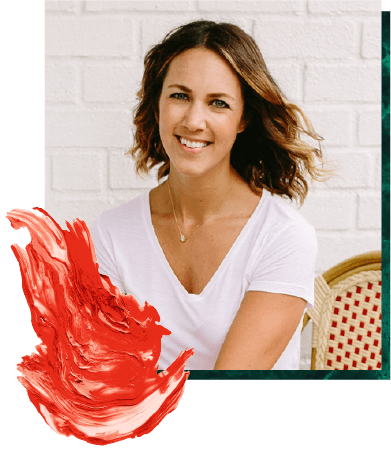
about
Alissa Rumsey, RD.
Alissa Rumsey, MS, RD, CDN, CSCS (pronouns she/her/hers) is a registered
dietitian, nutrition therapist, certified intuitive eating counselor, and the author of
Unapologetic Eating: Make Peace With Food and Transform Your Life. Alissa is
passionate about helping people reclaim the space to eat and live,
unapologetically.
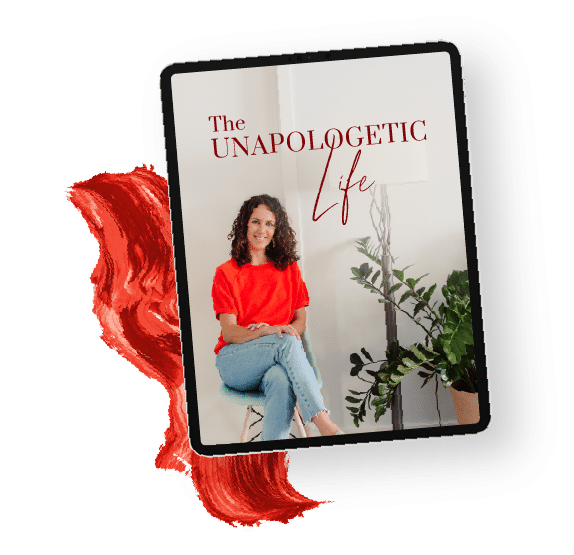
A twice-a-month round-up of inspirational stories, lessons, practical tips and encouragement for living your most authentic, unapologetic life.
The Unapologetic Life
RECENT POSTS
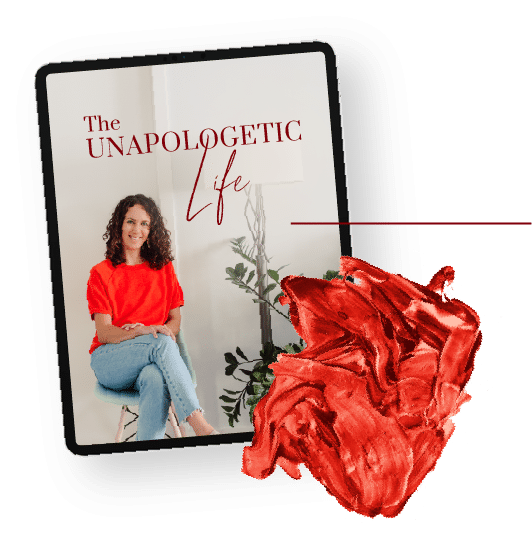
The Unapologetic Life
A twice-a-month round-up of inspirational stories, lessons, practical tips and encouragement for living your most authentic, unapologetic life.







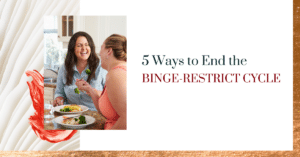

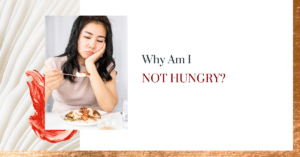
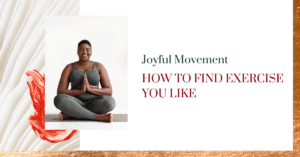

I rarely experience hunger cues, and am trying to eat intuitively.
If I was to eat when biologically hungry, I wouldn’t often eat and they wouldn’t be regular meals.
Should I honour my hunger and wait for hunger cues, or eat regularly even if I’m not hungry?
Hi Roman, great question – if you aren’t having regular hunger cues, it’s important toe at consistently throughout the day (generally speaking most people do best eating every 3-5 hours, with 3 meals and several snacks). If your hunger cues have atrophied, this may help them return. This is also important as certain things – like stress, anxiety, and certain types of exercise – can blunt our hunger cues, but it’s still important to eat consistently throughout the day. Intuitive eating is a combo of using body AND brain knowledge, so in this case you’d use more brain knowledge 🙂